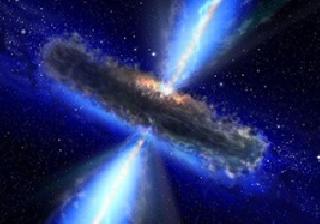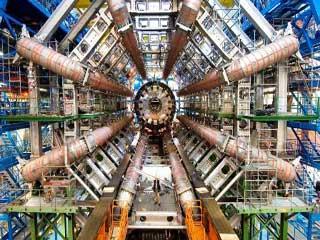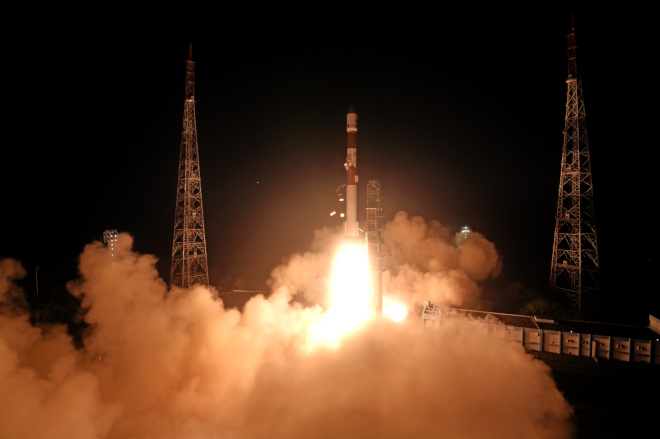
Artist's concept of a dusty torus, or donut, of accreting material fueling a quasar. A quasar is an active supermassive black hole. A NASA photo
WASHINGTON (BNS): The Wide-field Infrared Survey Explorer (WISE) telescope of NASA has found millions of new black holes in the Universe.
Surveying the sky with its powerful infrared eyes twice between December 2009 and February 2011, the telescope has spotted as many as 2.5 million actively feeding supermassive black holes, stretching back to distances more than 10 billion light-years away.
Around two-thirds of these dusty black holes have been detected for the first time, according to NASA.
Along with the black holes, WISE has also discovered extreme galaxies, also called dust-obscured galaxies (DOGs). These powerful galaxies, numbering about 1,000, burn brightly with infrared light.
Such galaxies can pour out more than 100 trillion times as much light as our Sun. They, however, are so dusty that they appear only in the longest wavelengths of infrared light captured by WISE.
NASA's Spitzer Space Telescope which followed up on the new discoveries in more detail, revealed that in addition to hosting supermassive black holes feverishly snacking on gas and dust, these DOGs are busy churning out new stars.
"WISE has exposed a menagerie of hidden objects," said Hashima Hasan, WISE programme scientist at NASA Headquarters in Washington. "We've found an asteroid dancing ahead of Earth in its orbit, the coldest star-like orbs known and now, supermassive black holes and galaxies hiding behind cloaks of dust."
The latest findings, released publicly, are helping astronomers better understand how galaxies and the behemoth black holes at their centres grow and evolve together, NASA said.
The findings are being published in the Astrophysical Journal.
 Previous Article
Previous Article Next Article
Next Article













The Indian Air Force, in its flight trials evaluation report submitted before the Defence Ministry l..
view articleAn insight into the Medium Multi-Role Combat Aircraft competition...
view articleSky enthusiasts can now spot the International Space Station (ISS) commanded by Indian-American astr..
view article